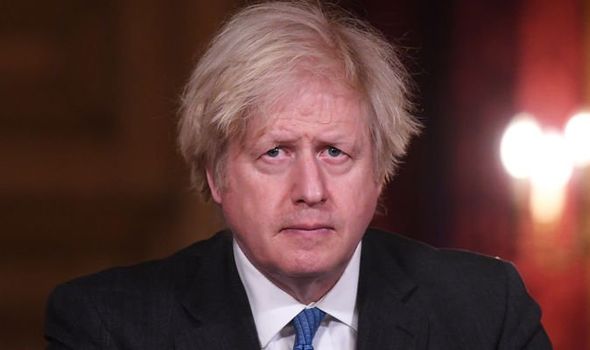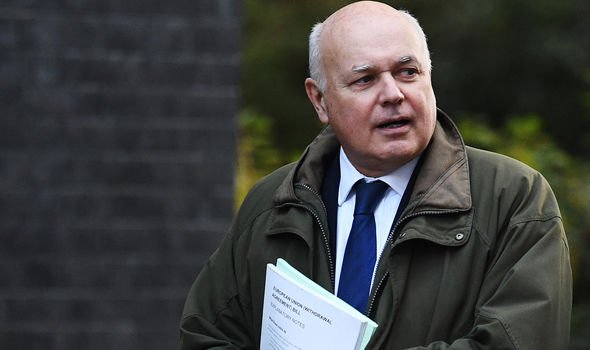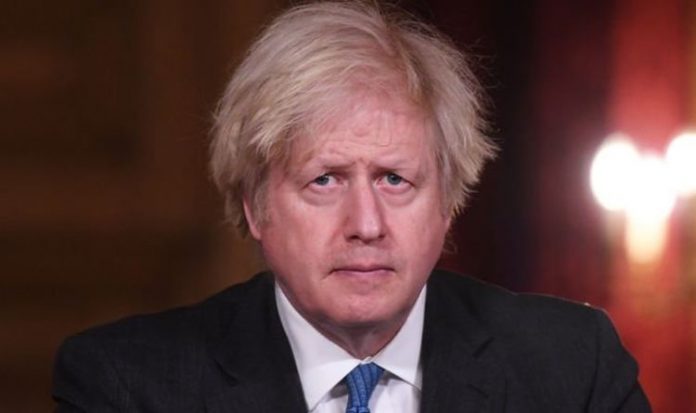Millennials: Experts discuss generation and economic challenges
The creation of enterprise zones is a key demand of the Blue Collar Conservatives to ensure Mr Johnson’s ambitions to spread prosperity and “level-up” the economy become a reality. The movement led by former cabinet minister Esther McVey has produced a list of demands for Wednesday’s Budget, topped off with no new tax rises, scrapping business rates, reducing beer duty, freezing fuel duty and getting rid of stamp duty on homes below £500,000.
But the Sunday Express has learnt that in meetings with the Prime Minister, senior Tory backbenchers have won a private commitment to enterprise zones which are expected in Chancellor Rishi Sunak’s Budget statement on Wednesday.
Bishop Auckland Conservative MP Dehenna Davison said: “This is a private sector-led way of delivering the levelling up agenda that we promised – much better than trying to just transfer public sector jobs.
“Enterprise zones are places with tax breaks to set up new business and create new jobs and have proven to be highly successful in kickstarting the economy before.”
Some of the most senior figures in the Conservative party are leading calls for Mr Sunak not to increase taxes.
Former Brexit Secretary David Davis said: “The worst thing that could happen now would be to raise taxes now. We need to allow the economy to get back on its feet, create new jobs.
Everything has to be about jobs. If we raise taxes that will make it much more difficult for businesses who are already short of money.

The Prime Minister wants to spread prosperity and ‘level-up’ the economy (Image: Getty )
“The government has to accept that we will need to pay off this debt from the pandemic over time and not try to do the equivalent of paying off a mortgage in one year.”
Former Tory leader Sir Iain Duncan Smith also warned against a tax hike, saying: “We should resist the siren voices calling for a lurch into increased taxes and cutting our way out of the crater in the nation’s finances left by Covid.”
Sir Iain, a fellow at the Centre for Brexit Policy (CBP), said taxes on “enterprise and job creation” should be lowered so Britain can “send a clear signal to the world’s wealth creators that a post-Brexit UK is the perfect place to do business.”
The CBP wants Britain to have the lowest business taxes in the world, with economists including Roger Bootle and Patrick Minford calling on the Chancellor to slash corporation tax to 10 percent by 2030.
There is also mounting opposition to business rates on Tory benches.

Former Tory leader Sir Iain Duncan Smith warned a tax hike (Image: Getty)
Lee Anderson, the Conservative MP for the “red wall” seat of Ashfield, wants the rates scrapped in a move he hopes would help revive high streets by encouraging entrepreneurs to invest.
He said: “We need to get people back on the high street because if we don’t we’re going to end up a society that does everything online.”
Peterborough MP Paul Bristow, a fellow Blue Collar Conservative, is pushing to keep fuel duty frozen.
He said: “Fuel duty hits the lower paid and workers outside of London the most. Fuel is one of an ordinary family’s biggest expenses.
“And we certainly don’t want to burden small business owners and van drivers with increased costs as we reopen the economy.”
Slashing beer duty is a priority for North West Durham Conservative MP Richard Holden.
He said: “[We] just want to encourage people to use pubs again and get used to going our again when they can.”

MP Paul Bristow is pushing to keep fuel duty frozen (Image: Wikipedia )
Powerful think tanks are also urging Mr Sunak to resist pressure to crank up taxes as the country escapes the pandemic.
The right-leaning Centre for Policy Studies argues tax rises would be a “mistake” and advises the Treasury to “prioritise growth over short-term deficit reduction”.
It wants the stamp duty holiday to be made permanent and also supports the extension of the furlough scheme.
Tom Clougherty, the think tank’s head of tax, said: “There will be a time for fiscal conservatism, and for a balanced approach to deficit reduction, but for now the overriding objective must be to go for growth.”
The Institute of Economic Affairs wants the Government to “radically reform and simplify Britain’s tax code” instead of raising taxes.
Policy adviser Sam Collins said: “As we face the twin upheavals of Brexit and Covid, now is the time to go for growth and rebuild our shattered economy, not worry about repaying debt at the cost of tax hikes. The British tax code, 12 times the length of the King James Bible, distorts our economy and adds unnecessary complexity to the lives of businesses and individuals.
“We therefore call for the abolition or replacement of 20 of the worst offenders, including corporation tax, alcohol, tobacco and vehicle duties, air passenger levy and stamp duty.”
The Taxpayers’ Alliance is also pressing the Government to cut taxes, claiming that of “1,651 tax changes since 2010, 63 percent were tax rises”.
Chief executive John O’Connell said: “This budget offers the Government an opportunity to break with their predecessors from the last decade by giving taxpayers a respite from tax rises.”
However, the influential Resolution Foundation is making the case for freezing the personal tax allowance at £12,500 and the higher rate threshold at £50,000, and for increasing corporation tax from 19 percent to 22 percent by the end of the parliament.
Mike Brewer, the foundation’s chief economist, said: “Freezing tax thresholds and announcing a staggered increase in corporation tax would have the triple benefit of raising around £16billion a year by 2025, while also protecting families that have been hit hardest by the crisis, and not holding back the recovery.”







